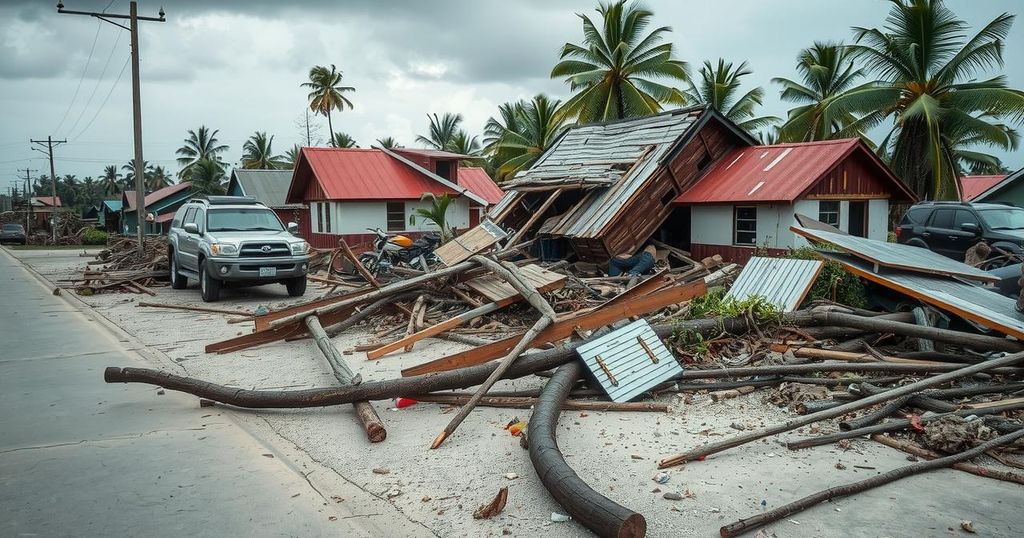Cyclone Chido has led to 120 fatalities and 868 injuries in northern Mozambique, affecting over 680,000 individuals. Its impact has resulted in significant destruction of homes and schools, necessitating urgent humanitarian assistance and highlighting the need for resilient infrastructure.
In Mozambique, Cyclone Chido has claimed at least 120 lives as it inflicted significant destruction across northern regions, including Cabo Delgado, Nampula, and Niassa. The national disaster relief agency has reported that 868 individuals have sustained injuries, while over 680,000 are grappling with the consequences of this natural disaster. The cyclone made landfall on December 15, unleashing heavy rainfall and violent storms that led to widespread flooding and infrastructure damage.
The devastation left behind by Cyclone Chido has severely impacted local communities. In total, Emergency services have reported impacting about 123,000 families, which amounts to approximately 622,610 affected individuals. Furthermore, over 140,000 homes have experienced varying levels of destruction alongside critical facilities such as schools and healthcare centers. As the situation unfolds, nearly 110,000 students find themselves unable to access their educational institutions due to the cyclone’s aftermath.
In response to the displacement crisis, the government of Mozambique has set up two emergency shelters that are currently accommodating 1,349 persons. The National Institute for Disaster Risk Management and Reduction underlined the severe repercussions of Cyclone Chido on both the educational and health sectors, emphasizing the urgency of resilient infrastructure in addressing climate vulnerabilities in the country.
Cyclone Chido traces its origins to a tropical depression formed over the southwestern Indian Ocean on December 5. After wreaking havoc in Mayotte, a French territory, it finally made landfall in Mozambique. The cyclone began as a less intense system with winds of 61 km/h or less, which progressed to a tropical storm and intensified further into a tropical cyclone.
Authorities and numerous international humanitarian organizations are actively appealing for assistance to address the pressing needs of the affected populations as they begin the arduous recovery process following Cyclone Chido’s devastating impact.
Cyclone Chido is a powerful tropical cyclone that has struck northern Mozambique, bringing catastrophic weather conditions, including heavy rainfall and high winds. Before making landfall in Mozambique on December 15, the cyclone formed over the southwestern Indian Ocean, where it initially caused damage in Mayotte. Mozambique’s regions, particularly Cabo Delgado, Nampula, and Niassa, are frequently vulnerable to such natural disasters, which have been exacerbated by climate change and inadequate infrastructure, impacting the resilience of communities to natural calamities.
In summary, Cyclone Chido has caused severe devastation in northern Mozambique, claiming 120 lives and impacting over 680,000 individuals. The destruction of homes and essential services, including schools and health facilities, has emphasized the urgent need for humanitarian aid and the importance of building resilient infrastructure to mitigate future disasters. As Mozambique grapples with the aftermath of this cyclone, international support remains crucial for recovery efforts.
Original Source: english.mathrubhumi.com






